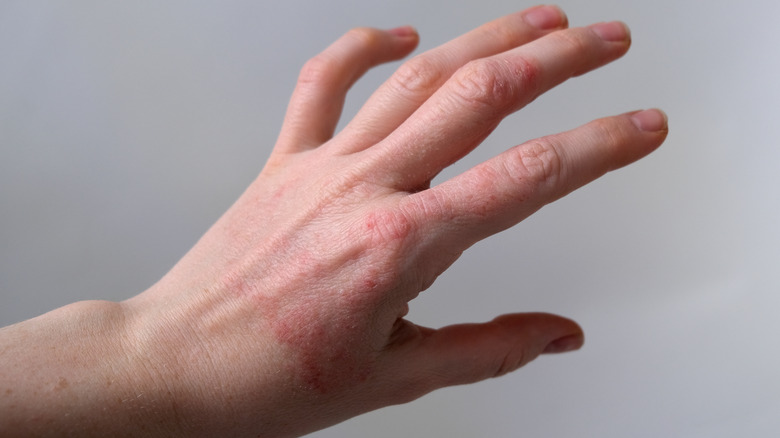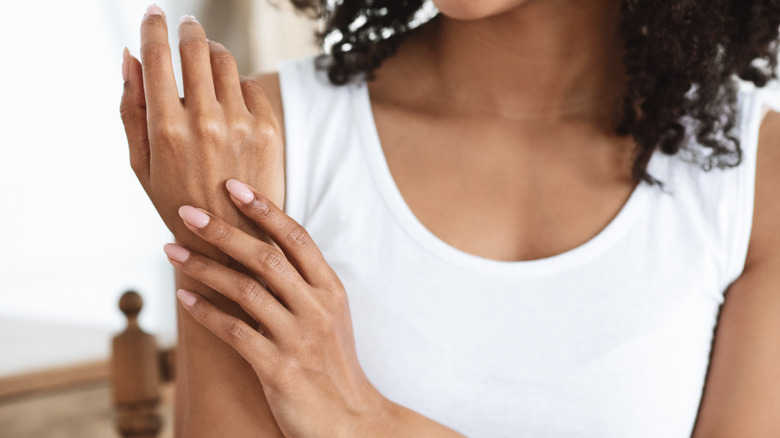How Does Eczema Spread?
While eczema can emerge at any age, most cases develop in early childhood by the time kids turn five years old, according to the American College of Allergy, Asthma, and Immunology. Symptoms include itching, redness, fluid discharge, and the emergence of dry, flaky rashes. Otherwise referred to as atopic dermatitis, various allergens can aggravate symptoms of eczema including detergents, soaps, makeup products, pet dander, and more. Even lesser-known sources, such as candle fragrances, or the juices from fruits, veggies, or meats, can all prompt eczema flare-ups (via National Eczema Association). As per the Cleveland Clinic, as many as 15 million people in the U.S. experience eczema, although the National Eczema Association states this number may be as high as 31 million people. Most often seen on areas, such as the hands, feet, knees, insides of the elbows, or around the eyes, those with a family medical history of dermatitis tend to be more susceptible to the condition.
Eczema does not always stay isolated to one area of the body — there are a few ways in which symptoms can spread from one patch of skin to another. MedicalNewsToday reports that eczema is primarily spread through scratching. Scratching, in turn, exacerbates further inflammation which can cause rashes to grow in size. Alternatively, if a particular allergen comes in contact with multiple areas of the body — such as using a new soap while bathing — these various areas may experience eczema flare-ups.
Can eczema spread from person to person?
A third way in which eczema can spread is through infection. In some instances, small, fluid-filled blisters can form alongside eczema rashes (via Better Health Channel). Weeping blisters often indicate a bacterial infection. As per MedicalNewsToday, scratching an oozing blister can lead to spreading if you were to then touch another area of dry skin.
Now that we know eczema can spread to various places on the body, can it also spread from one person to another? According to the Cleveland Clinic, eczema is not a contagious condition. It's believed to be a product of multiple different factors including one's environment, stress, immune system response, and genetics.
To help reduce your chances of eczema flare-ups, experts say there are a variety of preventative measures you can take. First and foremost, you'll want to avoid any known allergens. Additionally, try showering or bathing with lukewarm water and mild soap. Gently patting yourself dry and moisturizing afterward may also help reduce eczema outbreaks. Alternatively, wear loose-fitted cotton clothing. Not only is it less aggravating than other materials, such as wool, but its breathable fabric may also help prevent sweating, which can also trigger flare-ups. Lastly, consider consulting with your physician or dermatologist, as they can help develop a treatment plan for managing eczema symptoms.


